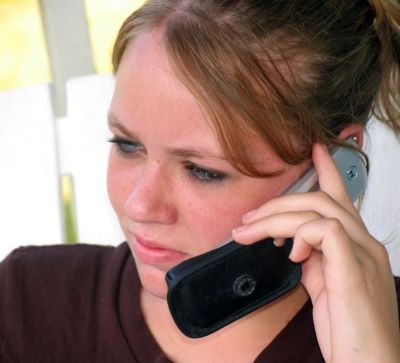The Substance Abuse and Mental Health Services Administration should make 988 Lifeline data available so researchers and policymakers can evaluate the effectiveness and appropriateness of the handling of calls, and to ensure callers’ human rights are being respected, Citizens Commission on Human Rights says.
Citizens Commission on Human Rights (CCHR) is calling on the U.S. Substance Abuse and Mental Health Services Administration (SAMHSA) to collect and make publicly available data from the 988 Suicide and Crisis Lifeline on the reasons for calls to the Lifeline and the resolutions of those calls, so that researchers and policymakers have an accurate picture of the results of the program.
In particular, CCHR is concerned with evidence of a growing rate of distressed or unhappy callers having police, emergency medical teams, or mobile behavioral health crisis units show up unexpectedly at their location to transport them against their will to psychiatric facilities for evaluation, a procedure that may be considered a violation of human rights under international human rights standards. What’s more, research shows that coercive practices do not reduce, but increase the likelihood of future suicide attempts.
The 988 Lifeline system, formerly known as the National Suicide Prevention Lifeline, launched in July 2022 to provide an individual in crisis, or someone connected to them, a phone number to call and get help with their mental health or substance abuse issue.
The statistics publicly available from Vibrant Emotional Health, the national Lifeline administrator, and SAMHSA do not include either the circumstances that led to the calls, which can be non-emergency in nature, or the outcomes for the callers, so it is not known how many calls end up with the caller receiving the emergency intervention of being involuntarily transported by police or emergency medical teams to psychiatric facilities, or why.

Vibrant’s stated policy is to “initiate an involuntary emergency service intervention only as a last resort,” and it has long reported that one in 50 (2%) of calls to the Lifeline lead to emergency services being dispatched.
However, there is evidence from states’ reports on their own call centers and from NRI, a nonprofit organization that collects data on public behavioral health systems, that this figure may significantly understate the number of Lifeline callers being subjected to coercive emergency procedures.
In its 2023 report on various outcomes from crisis call centers in 10 to 25 states, NRI found that “an average of 16.9% of calls (median of 7.0%) resulted in mobile crisis [teams] being dispatched, 3.8% resulted in law enforcement being dispatched, 1.9% resulted in EMS [emergency medical services] being dispatched, and 2.3% of calls were transferred to a 911 system (which may have then dispatched law enforcement or EMS to respond to the individual in crisis).”
Research has found that forcing people to go to psychiatric facilities does not improve mental health outcomes and that those admitted against their will are more likely to attempt suicide after discharge. Concern about being involuntarily confined in a psychiatric setting is one of the main reasons young people do not seek mental health care.
In light of evidence showing a lack of benefit and considerable harm from coercive mental health treatment, international human rights organizations are calling for abolishing all coercive mental health practices. In 2023, the World Health Organization (WHO) and the United Nations Office of the High Commissioner for Human Rights called for an end to coercive mental health services, saying the practices “violate the right to be protected from torture or cruel, inhumane and degrading treatment.”
WHO’s opposition to nonconsensual mental health treatment extends even to those in acute mental distress, saying that individuals in mental health crisis “are at a heightened risk of their human rights being violated, including through forced admissions and treatment,” which are “harmful to people’s mental, emotional and physical health, sometimes leading to death.”
In 2019, the Council of Europe passed a resolution calling on its member nations “to immediately start to transition to the abolition of coercive methods in mental health settings.” The resolution cited evidence pointing to the “overwhelmingly negative experience of coercive measures, including pain, trauma and fear.”
Among international psychiatric organizations, the World Psychiatric Association has stated its concern about “the extent to which coercive interventions violate” human rights. The European Psychiatric Association says that examining how to reduce coercive practices in psychiatry is a priority for the association.
However, the American Psychiatric Association has refused to reverse its position in support of involuntary psychiatric treatment. CCHR has called on the association to renounce coercive psychiatric practices and align with international human rights standards.
Since its founding in 1969, Citizens Commission on Human Rights has worked to restore human rights and dignity to the field of mental health. It has advocated for widespread adoption of a Mental Health Declaration of Human Rights that lays out fundamental human rights in the field of mental health.
In its April 2024 report on the 988 Lifeline, SAMHSA says that it will “strengthen data collection from [call] centers to assess outcomes of service.” SAMHSA acknowledges that no research has yet shown a reduction in near-term suicide risk from the Lifeline.
“SAMHSA owes the American people transparency on the results of the 988 hotline,” says Anne Goedeke, president of the CCHR National Affairs Office. “Making meaningful data from this massive program available to policymakers and independent researchers to evaluate should be a priority for SAMHSA.”
